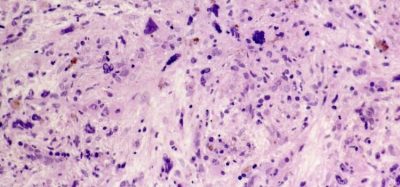Pfizer reports top-line results from two Lyrica® capsules CV phase 3b studies
Posted: 18 October 2013 | Pfizer | No comments yet
The study met its primary endpoint, showing a statistically significant greater reduction in fibromyalgia pain…
Pfizer Inc. (NYSE: PFE) announced today top-line results from two phase 3b, placebo-controlled studies with Lyrica® (pregabalin) Capsules CV in patients with fibromyalgia (FM) and painful diabetic peripheral neuropathy (DPN), respectively. The fibromyalgia study, A0081275 met its primary endpoint, showing a reduction in pain associated with fibromyalgia in patients who were treated concurrently with antidepressant therapy for comorbid depression. Separately, the painful DPN study, A0081269 did not meet its co-primary endpoints by sufficiently reducing DPN pain and DPN pain on walking compared to placebo.
A large number of people living with fibromyalgia also suffer from depression and take antidepressant medications. The fibromyalgia study (A0081275) was a multicenter, double-blind, randomized, placebo-controlled, two-way cross-over study of Lyrica in the treatment of FM pain in patients taking concurrent antidepressant therapy for comorbid depression. The study enrolled 197 patients diagnosed with both fibromyalgia and comorbid depression who were taking a stable dose of a single antidepressant medicine (either a selective serotonin reuptake inhibitor or a serotonin–norepinephrine reuptake inhibitor) for their depression for at least three months prior to the study. In each of the two double-blind treatment periods, patients were randomized to receive Lyrica (300 or 450 mg) or placebo twice per day during a six-week treatment phase, followed by a two-week washout period, and then crossed over to the opposite treatment for an additional six weeks.
The study met its primary endpoint, showing a statistically significant greater reduction in fibromyalgia pain in patients receiving Lyrica compared to patients receiving placebo assessed by diary-based, daily pain scores. The safety profile of Lyrica was consistent with previous studies and current product labeling. The most common adverse events in this study included dizziness, somnolence and constipation.
Patients who have painful DPN can also have pain while walking. The study in patients with painful DPN who also had pain on walking (A0081269) was a multicenter, double-blind, randomized, placebo-controlled cross-over efficacy and safety study. The co-primary endpoints were DPN pain assessed by diary-based, daily pain scores and pain on walking assessed after walking 50 feet on a flat surface. The study enrolled 205 patients who were randomized to receive Lyrica (150 or 300 mg/day) or placebo during a six-week double-blind phase, followed by a two-week, washout period, and then crossed over to the opposite treatment for an additional six weeks.
Painful DPN and pain on walking were reduced in patients treated with Lyrica or placebo. The study did not show a statistically significant difference between Lyrica and placebo in the co-primary endpoints. The safety profile of Lyrica was consistent with previous studies and current product labeling. The most common adverse events in this study included dizziness, somnolence and fatigue.
Results from these studies are expected to be submitted for presentation at upcoming scientific congresses and for publication in peer-reviewed medical journals.
About Lyrica
Lyrica® is currently approved for various indications in 120 countries and regions globally. Lyrica is approved for five indications in the U.S., of which four are in the therapeutic area of pain. These indications include neuropathic pain associated with diabetic peripheral neuropathy, post-herpetic neuralgia (pain after shingles), neuropathic pain associated with spinal cord injury, fibromyalgia and partial onset seizures in adults with epilepsy who take one or more drugs for seizures.
In the European Union, Lyrica is approved for four indications: peripheral and central neuropathic pain, generalized anxiety disorder in adults, and partial seizures with or without secondary generalization in adults with epilepsy.
In Japan, Lyrica is the only treatment approved for all three of the following indications: post-herpetic neuralgia, neuropathic pain and pain associated with FM.
Lyrica’s ongoing clinical development program is focused on the significant unmet needs of patients with certain chronic pain conditions.
Antiepileptic drugs (AEDs), including Lyrica, increase the risk of suicidal thoughts or behavior in patients taking AEDs for any indication. There have been post-marketing reports of angioedema and hypersensitivity with Lyrica. Treatment with Lyrica may cause dizziness, somnolence, dry mouth, edema and blurred vision. Other most common adverse reactions include weight gain, constipation, euphoric mood, balance disorder, increased appetite and thinking abnormal (primarily difficulty with concentration/attention).
For Lyrica prescribing information in the U.S. visit www.lyrica.com, in the European Union visit www.ema.europa.eu/ema/ and in Japan visit www.pfizer.co.jp.








